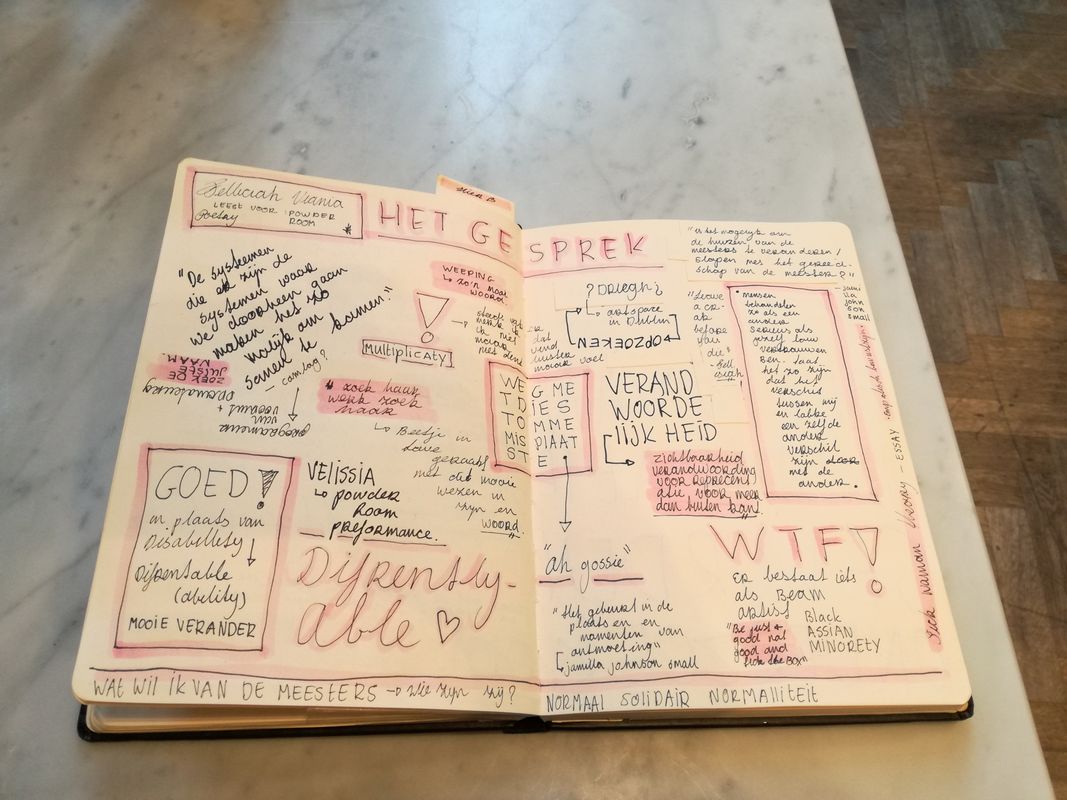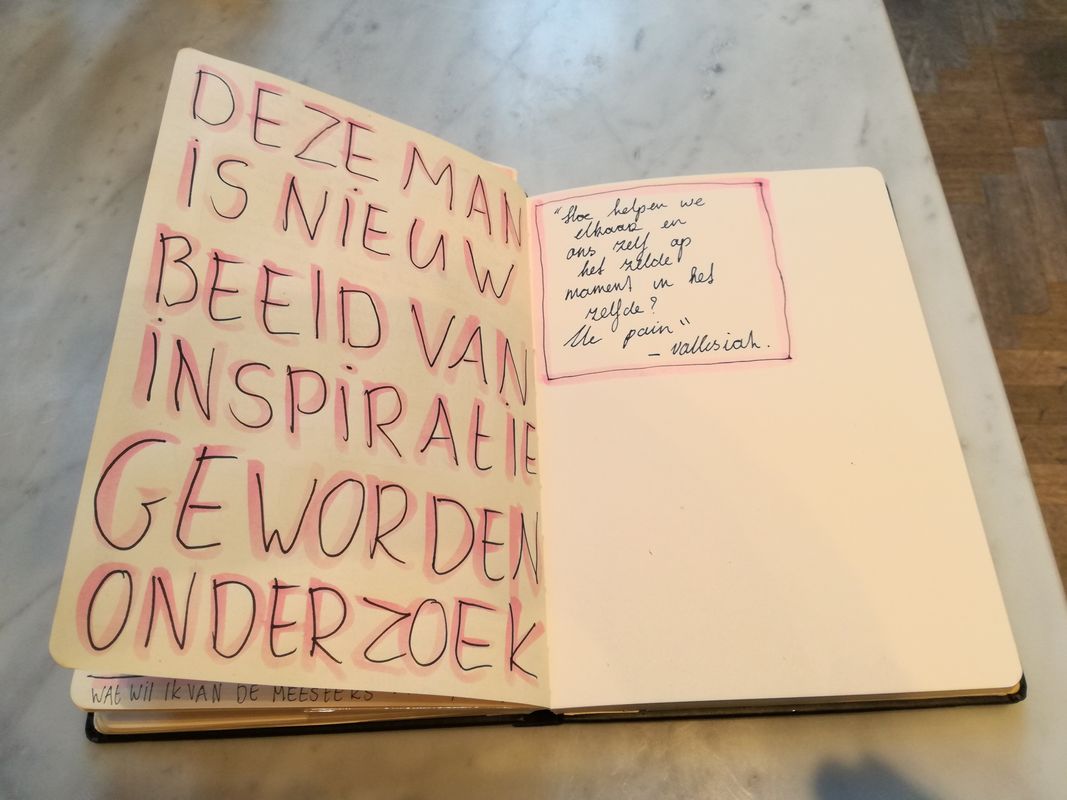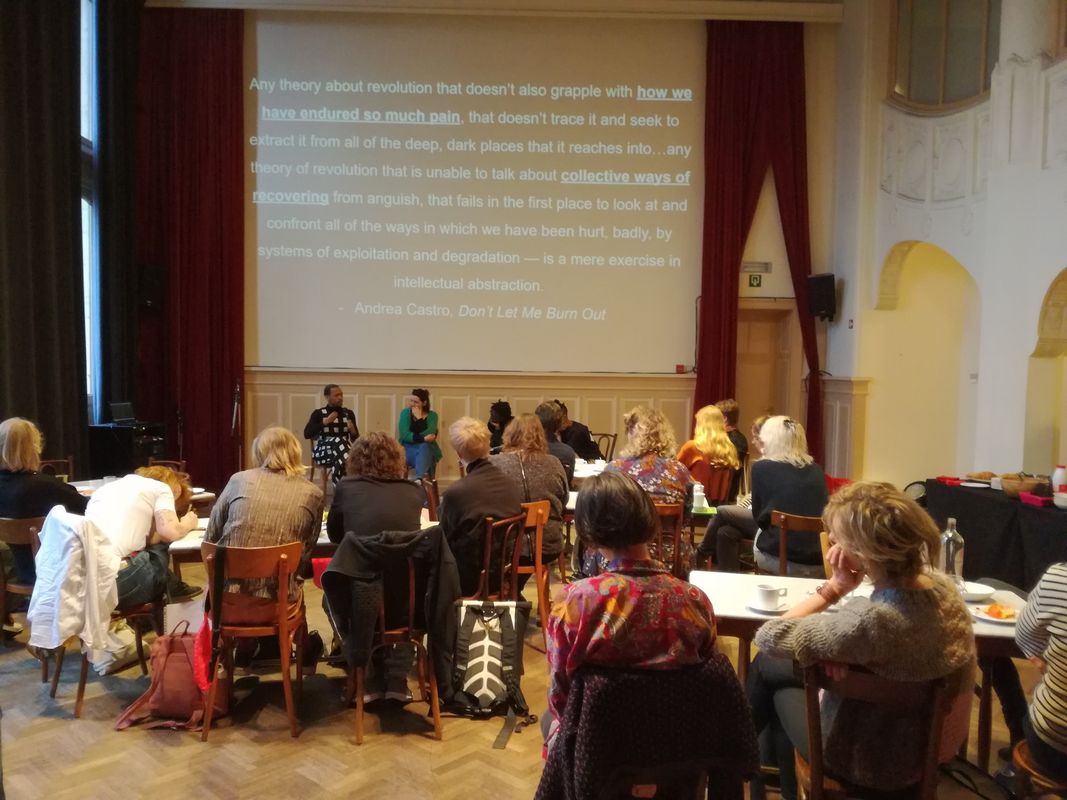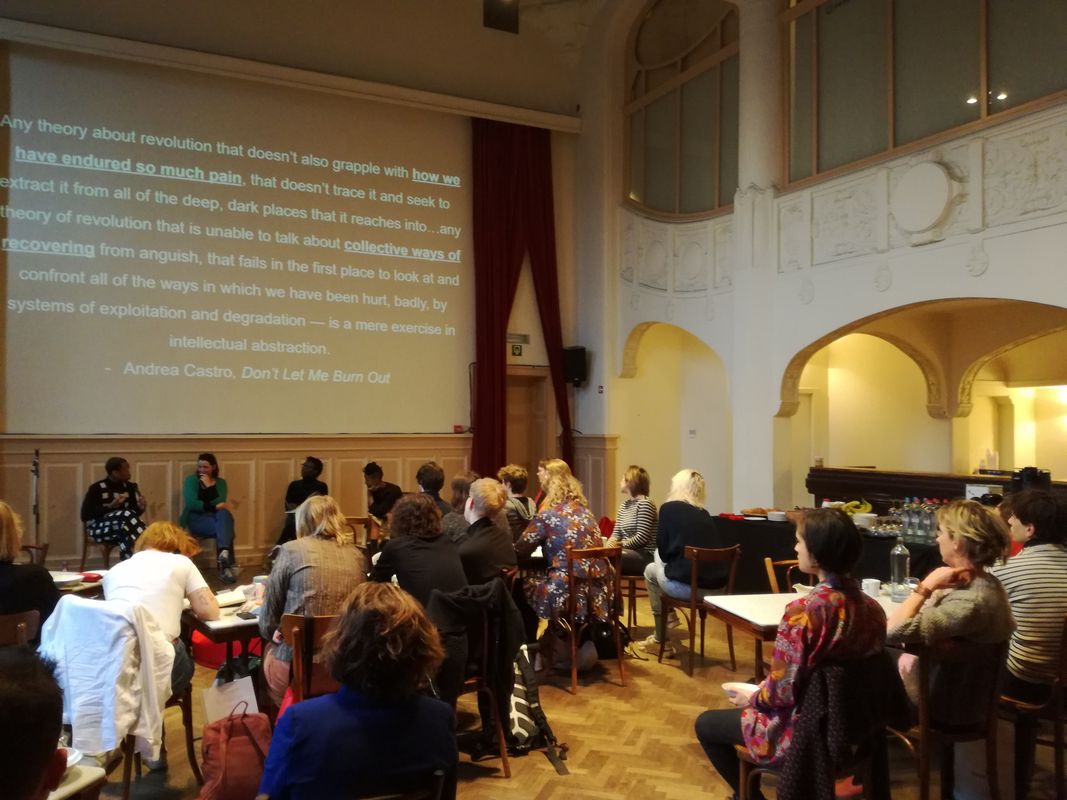Resume Six Impossible Things Before Breakfast
On the early morning of the 5th of March 2020 (08:30 to be exact), in Gent, in the Foyer Theaterzaal of Vooruit, there was a gathering of people, bodies and words. In between bites of granola and pastries and sips of coffee, water and tea, we collectively shared stories of survival, struggle, silence and our collective navigations at various intersections.
“The body is not a thing, it is a situation.”
At this particular edition of Six Impossible Things Before Breakfast we invited the Irish-Nigerian performance artist and poet Felicia Olusanya; the Belgian born artistic coordinator of Platform-K, Inge Lattré; and the London based dance artist Jamila Johnson-Small to think with us and share what they could about their practices through the lense of intersectionality.
“Intersectionality is the interconnected nature of social categorizations such as race, class, and gender, regarded as creating overlapping and interdependent systems of discrimination or disadvantage; a theoretical approach based on such a premise.”
Inge kicked off with the story of her winding path to being artistic director of Platform-K. A path that was catalyzed through an essay that she wrote as a student critiquing Platform-K (of which she was not a part.at the time) for its infantilizing and problematic portrayal of disabled and neurodivergent dancers. Felicia shared with us her work workshopping poetry with older, working class white, Irish women and Nigerian migrants living in Ireland and the complexities, differences and resonances she experienced moving through these two markedly different spaces. Jamila shared with us a series of thoughts that spontaneously came to mind during the conversation we had that served to push our thinking into a more critical direction.
Felicia graced us with electrifying and deeply moving pieces of spoken word dedicated to mothers and forgotten young women. Jamila blessed us with interventions critiquing the biological determinism of identity discourse. She provoked us to think about how identity politics can serve to reinforce our false, biologically determined hierarchies of privilege and access.
It was a rich morning. A temporary incubator for musings of a future where we have the capacity to hold each other through and across difference. And to consider how to truly be in solidarity with each other through and across difference. And somehow, together, find each other at the intersection.
“There is no thing as a single-issue struggle because we do not live single-issue lives.”
Kopano Maroga






